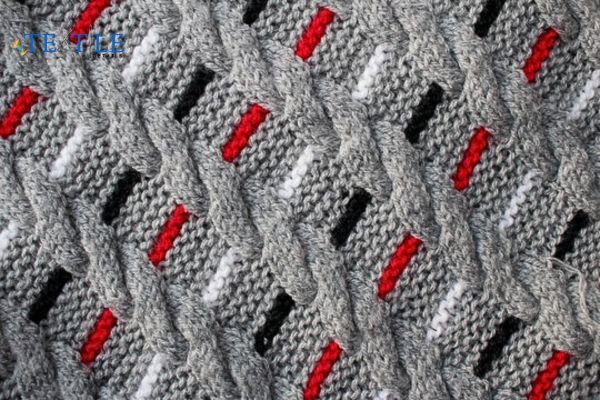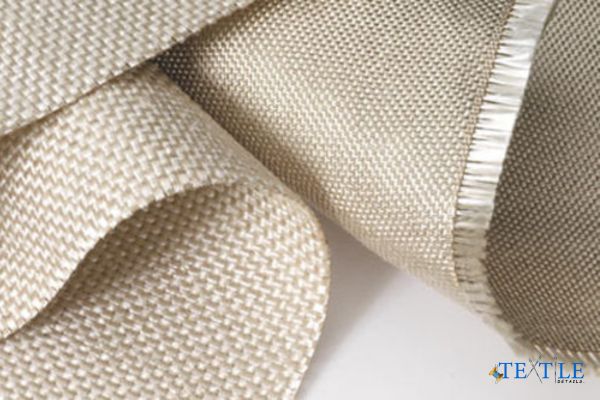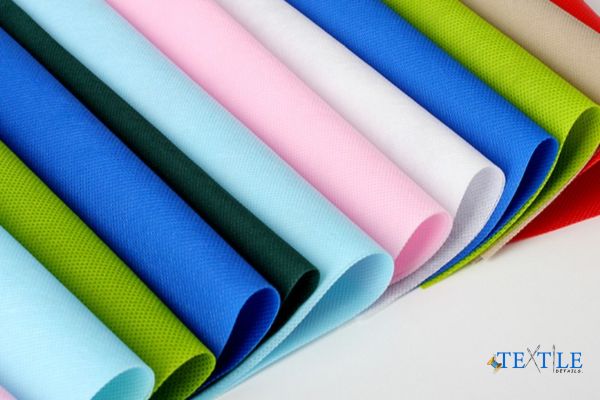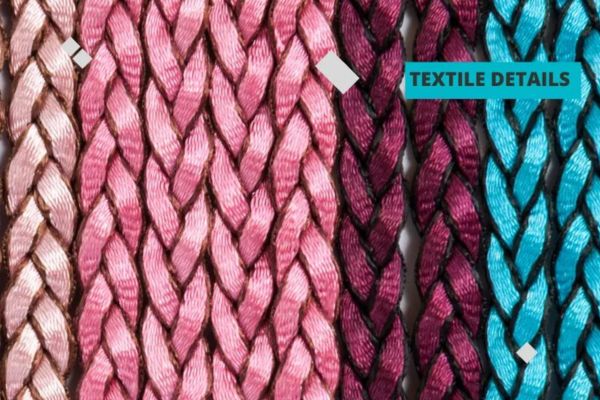Fabric is one of the crucial components of the textile industry, and it is referred to as the backbone of this industry. There are different types of fabric in the textile industry, and they are used in various applications based on their features and functionalities. However, most people don’t know what is fabric and what it means.
Table of Contents
Fabric is generally a flexible textile material composed of fibers, and it comes with a pliable plain-like structure. Textile fabrics can be stretched, permeated, molded, and draped while yet being inherently strong. Fabrics are used to manufacture the final textile products.

What is Fabric?
Fabric is a plain, pliable sheet that is manufactured from different types of threads or fibers. Fabric can be produced through spinning using knitting or weaving procedures. The word “fabric” is used to describe a structural structure constructed of interlaced or interloped fibers, as well as felt created from interlocking fibers.
Fabric is available in different types, but they are classified in 2 main categories: Natural fabric and man-made fabric. Each type of fabric comes with distinct features and also has particular functionalities. Depending on the features and function, fabrics are used in different types of textile and clothing products.
Fabric Meaning
Fabric is one of the essential materials in the textile industry, and it is considered as the backbone of this industry. Typically, the term “fabric” refers to materials made for clothes. Generally, it is the term that refers to a versatile material that is manufactured from different fibers, typically derived from natural or even synthetic materials.
Fabric can be manufactured utilizing different ways like weaving, braiding, knitting and netting. Textile fabric generally serves as the foundation for different textile products ranging from clothing to upholstery. It can be found in various types, and each type of fabric comes with different characteristics.
Fabric Definition
The word “fabric” specifically defines a flexible material that is used in the textile industry. This material is mainly used to manufacture different garment and textile products, including clothing, accessories, upholstery, and so on. Fabric is generally made of fibers or threads using a different process.
Textile fabrics are available in different textures and patterns and have several features. The production of fabric involves several steps, from fiber production to the last product. Ultimately, the fabric is a multipurpose and necessary substance that affects our everyday life’s utility and fashion.
Classification of Textile Fabric
Although textile fabrics are available in different types, they are classified into 4 primary categories. Knit, woven, non-woven, and branded are the 4 main categories of textile fabric. Depending on this category, the features and functionalities of fabrics can vary.
Knitted Fabric
Knit fabric is made by looping fibers and knitting them to produce a textile structure. The main form of knit fabric is made up of yarn loops that are looped around or woven together.

Due to their straightforward nature and speedy manufacture, knit materials are more cost-effective. Knitted textiles often weigh little and are comfortable to wear, even when traveling.
Woven Fabric
Woven is one of the most popular fabrics in the textile industry. This fabric is manufactured using a power loom or handloom weaving process. The warp, as well as weft yarns, interlace in this weaving process.

The warp and weft yarn can be composed of synthetic or natural fibers. The weft yarn is woven in the breadth direction, whereas warp yarn is used along the length direction. Woven fabric is among the most durable fabrics.
Non-Woven Fabric
Non-woven is made of one or more fiber layers that are flexible and porous. Non-woven textile fabrics have had their fibers bonded together to form textiles.

These fabrics are created without the use of a loom by mechanical, thermal, or chemical methods. The different fibers might either be put randomly or with a preference for one direction.
Braided Fabric
Braided fabric is made by diagonally interlacing three or more yarns or textile fibers. This interlacing creates a stable, structured, and known for its flexibility.

The specific design and thickness of the strands used in the braiding process can vary, resulting in different textures and appearances. They are valued for their durability and unique visual appeal, making them a versatile choice in a variety of applications.
The FAQs
What is the definition of fabric?
Fabric is a textile material that is manufactured from threads using different processes. It can be found in natural, synthetic, or even fibers are turned into yarn, and fabrics are produced from yarn. Fabric is used to produce different products, including clothing, accessories, upholstery, and so on.
What is in fabric material?
Fiber is the primary material of fabric, and it is compared as the backbone of fabric. Typically, fibers are turned into yarn, and fabrics are produced from yarn. The Fibers can be from natural, synthetic, or a combination of sources.
What are the uses of fabric?
Fabric is used to manufacture products like clothing, shoes, bags, and household furnishings like bedsheets, pillows, and towels. The characteristics of various varieties of fabric are determined by the material they are manufactured from; they might be thick or thin, smooth or rough, heavy or light.
What are the most used Fabrics?
What is the highest quality fabric?
Highest-quality fabrics are those that are manufactured from top-notch quality fibers. Cotton, silk, Pima, Cashmere, and acrylic are some of the best-quality fabrics. These fabrics are utilized to produce different luxurious and exclusive textile products.
Why is good fabric substantial?
Good fabric is crucial because it directly affects the quality, comfort, and longevity of clothes and textiles. High-quality fabric is soft to the touch, durable, keeps its color and form, and improves the overall appearance and use of apparel and furnishings.
